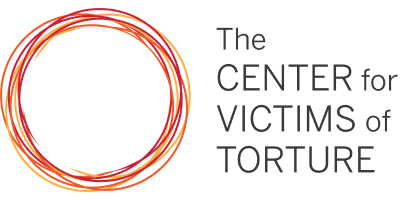ST. PAUL, Minn. — A new assessment report from Center for Victims of Torture (CVT) presents perspectives on justice and healing from formerly abducted women and their children who were born in captivity in Northern Uganda during the Lord’s Resistance Army (LRA) war. As formerly-abducted and displaced mothers have sought to reintegrate into communities, their children are often unrecognized as legitimate members of society and their rights and needs have been neglected. This new report shares the results of a qualitative study that examines the ways survivors confront these issues, define justice and connect justice with healing.
The report, “Repairing the Wrongs in Northern Uganda: Survivor-Defined Justice for Mothers and Their Children Born of War,” describes that while most survivors think of justice in terms of economics or quality of life, there are many additional considerations. Participants said that being able to provide for their families and feel like a valued part of a community are important, but so are having ways to repair past harms and hold perpetrators accountable.
Dr. Shannon Golden, primary author and CVT evaluation and research lead, said, “Working towards healing and justice is a deeply integrated process. There is a need for repair, to directly address the harm that occurred in the past, and then there also is a process of restoring well-being, dignity, and hope. For a society collectively to make progress towards justice, individual survivors must feel that their own healing and justice needs are being addressed.”
And while study participants said both healing and justice are necessary, the authors wrote that “for most, there has been insufficient progress towards either.”
The interview team, supported by staff with clinical experience including counseling and training in psychological first aid, spoke to 82 individuals. They invited respondents through survivor-led organizations and networks in the region, and then conducted interviews and focus groups on four key themes: Justice, healing, community and documentation of one’s story.
Coping with stigma as they attempt to reintegrate into the community after captivity has been a consistent concern for participants, even so many years after the war’s end. Both children and mothers described pervasive discrimination and marginalization, which impact healing as well as a sense of justice.
Joel Innocent Odokonyero, report author and CVT transitional justice specialist, said, “It’s important to survivors to accept their past, and counseling helps with this process. However, being rejected by the community impacts healing and makes it difficult to leave the past behind. When you experience ostracization, you are constantly reminded of what was done to you.”
This stigma impacts survivors’ interest in documenting their stories, a practice that has been shown to aid healing. However, participants noted that they would be interested in documenting their stories if doing so would help offset the stigma and serve as a tool to prevent future abuses.
The report provides recommendations that survivors’ perspectives be shared as local, national and global civil societies work on transitional justice initiatives, efforts that are particularly compelling now as reparations are actively being addressed for some victims directly connected with the International Criminal Court (ICC) and International Crimes Division (ICD) prosecutions of crimes by prominent LRA actors Dominic Ongwen and Thomas Kwoyello. This work to make sure that the voices of those who have lived through these human rights violations are heard is more critical than ever.
Authors of the report include a number of CVT staff, all of whose employment at CVT was abruptly impacted earlier this year by furloughs, change or loss when the U.S. government cut its foreign aid funding. CVT is proud of the contributions of these colleagues, whose exceptional work on this report is a testimony to their dedication and expertise in this field. These authors include Shannon Golden, Joel Innocent Odokonyero, Brian Jakisa, monitoring and evaluation officer, Diana Amito, monitoring and evaluation assistant, and Noor Saleem, program evaluator.
Funding for the report was provided by the U.S. Department of State.
-###-
The Center for Victims of Torture is a nonprofit organization with offices in Ethiopia, Iraq, Jordan, Kenya, Uganda, United States and additional project sites around the world. Visit www.cvt.org
